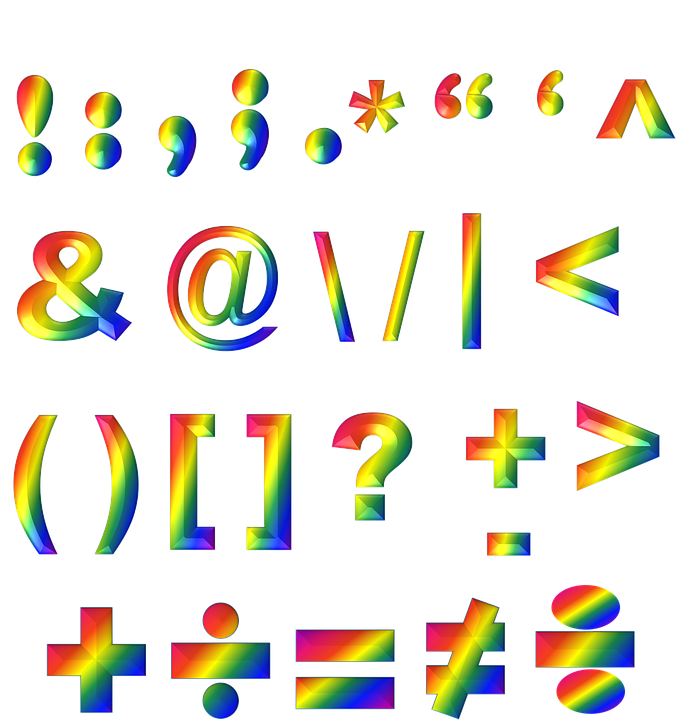There ain’t nothing worse than writing errors to mar the beauty of the masterpiece that is your dissertation or thesis. Although I’m sure that this lead-off double negative jumped out at you as clearly incorrect, many of the other “fails” in scholarly writing are much more difficult to spot for the untrained eye. The American Psychological Association’s (APA) style guide and publication manual is often considered the gold standard of research writing and editing guidelines, and anyone who has dipped into this manual is aware of the vast sea of nuance it conveys.
Mastering these nuances in your dissertation or thesis manuscript will be essential to moving your work through to approval with your committee, so it’s well worth the effort to learn the tricks of the trade that any dissertation editor knows by heart. Before we move into the writing fails that most frequently delay dissertation or thesis approval, it is important to emphasize that “the prime objective of scientific reporting is clear communication” (APA, 2010, p. 65). Dissertation editing creates clarity in research manuscripts that by their very natures are complex, and this clarity then allows the reader to more easily grasp the substance of the work. So, you can be assured that the purpose of the following writing guidelines is not to make you slowly lose your sanity; these guidelines truly help to bring to the forefront the significance and impact of your dissertation research.
Verb Tense Fails
To kick off our discussion of dissertation writing fails, let’s start with verb tense. Verb tense fails are a major source of editing frustration for our clients who are working on their dissertations. Getting your verb tense just right is definitely a nuanced matter, and the tricky thing about this is that verb tense usage that isn’t technically incorrect in a grammatical sense can still be incorrect in the context of research or dissertation or thesis writing. This means that spellcheck won’t help you to catch these errors; only a trained human eye is up to this task. There are two major areas where verb tense often becomes an issue and requires editing: (a) proposal versus final dissertation tense, and (b) verb tense when writing about the literature.
Proposal versus final dissertation tense. Verb tense considerations come into play when writing about your study’s aims and purpose, its procedures, and its findings. The challenge here is that what is correct for your verb tense changes over the course of your study as you move from the proposal to the final version of the dissertation. Because your proposal establishes the rationale and procedures for your upcoming participant recruitment, data collection, and data analysis, you need to consistently refer to your aims and intentions in present or future tense.
But then, after you collect and analyze your data, all of these research procedures have been completed. Therefore, it is logical that you would write about all of these using past tense. This means that in addition to writing your results and discussion chapters in past tense, you will need to go through your proposal with a fine-toothed comb to identify each instance of “proposal tense” that needs to be converted to past tense. Sound tedious? It definitely is, which is why most candidates seek out professional dissertation editing services to help with this before finalizing their dissertations.
For the DIY crowd, however, here are some examples of proposal versus final dissertation tense you will want to scour your manuscript for in your final review of your dissertation (note that italics are used to help emphasize editing issues in all of the following examples and would not be present in the actual manuscript):
| Proposal Tense | Final Dissertation Tense |
|---|---|
| The purpose of this qualitative phenomenological study is to explore the lived experiences of… | The purpose of this qualitative phenomenological study was to explore the lived experiences of… |
| To gather data, I will conduct interviews with 12 participants… | To gather data, I conducted interviews with 12 participants… |
| After importing the transcripts into qualitative analysis software (i.e., NVivo), I will use the modified van Kaam analysis… | After importing the transcripts into qualitative analysis software (i.e., NVivo), I used the modified van Kaam analysis… |
Verb tense when writing about the literature. Use of the correct verb tense is also critical when writing about theorists’ propositions, previous researchers’ findings and conclusions, and your own study’s findings and conclusions. For the most part, you need to write about these in past tense; however, there are those special exceptions to the rule in which present tense or present perfect tense is correct. APA (2010) states that past tense is correct when discussing “an action or a condition that occurred at a specific, definite time in the past, as when discussing another researcher’s work or reporting your results” (p. 78). However, present tense may be used to describe implications of past research that are currently relevant. Present perfect may be used to describe events that occurred in the past but at indefinite time points “or to describe an action beginning in the past and continuing to the present” (APA, 2010, p. 78).
Talk about nuance! It can be difficult to distinguish between presentation of information with specific versus indefinite time points, and differentiating between past findings and statements of continuing implications can be tricky as well. The following is intended to help you to distinguish between these as you are editing your dissertation:
| Verb Tense FAIL | Verb Tense FIX |
|---|---|
| Deci and Ryan (2000) posit that autonomy, competence, and relatedness are the three core dimensions of self-determination. | Deci and Ryan (2000) posited that autonomy, competence, and relatedness are the three core dimensions of self-determination. |
|
Why is this wrong?
We are referring to a statement Deci and Ryan made in a particular article, which means that their statement can be pinned down as occurring at a specific, known point in time. Therefore, use of past tense is correct.
|
|
| Haile, Emmanuel, and Dzathor (2016) conclude that women encountered barriers to advancement due in part to negative gender stereotypes. | Haile, Emmanuel, and Dzathor (2016) concluded that women encounter barriers to advancement due in part to negative gender stereotypes. |
|
Why is this wrong?
Haile and colleagues presented their conclusion about women’s barriers to advancement in a specific article, and so past tense (concluded) is correct because we know exactly when they made this statement. However, the conclusion that women experience such barriers was a statement of the current, ongoing implications of their findings; therefore, present tense (encounter) is correct. If, on the other hand, the authors were making a specific statement about what participants reported, past tense would have been correct (e.g., “…participants reported that they encountered barriers…”).
|
|
| Researchers examined the relationships between a variety of leadership styles and employee productivity. | Researchers have examined the relationships between a variety of leadership styles and employee productivity. |
|
Why is this wrong?
In this case, you are not referring to a specific study in which researchers examined the relationship between leadership style and employee productivity, but you are instead referring broadly to the literature related to this topic. If you were referring to one single study, then you would use past tense (examined); however, because you are referring to a body of research that has developed over time and that continues to develop, use of present perfect (have examined) is correct.
|
|
Anthropomorphism Fails
Use of anthropomorphism in research writing is another serious writing fail to avoid. When you “attribute human characteristics to animals or to inanimate sources” (APA, 2010, p. 69), this is anthropomorphism. For example, if a purely hypothetical person suggested that her cat was ignoring her because she was mad about not getting her favorite treat last night, that would be an example of anthropomorphism (not that I’ve ever done that or anything!).
Anyway, the anthropomorphism we need to be concerned with for purposes of APA editing in your dissertation is the attribution of human behaviors to non-humans in research manuscripts. In most cases, this involves suggesting that things like studies, research, theories, or results have engaged in behaviors of which they are technically incapable. These include a range of distinctly human behaviors such as investigating, examining, positing, or concluding. What makes this an especially challenging point to absorb as an emerging researcher who is just learning the techniques of scholarly writing and APA editing is that you actually see anthropomorphism quite frequently in published research. It is reasonable to assume that you might model your writing after that of published researchers (wrong!), but in this case, I would suggest that you defer to our old friend the APA manual.
Training yourself to recognize anthropomorphism as you are writing is ideal because it saves you the trouble of having to go back through your whole dissertation later to complete editing of these portions. As with the verb tense issues discussed previously, spellcheck can’t help you to identify these fails because they are not technically incorrect on a grammatical level. This is why dissertation editing truly requires a human touch. Following are some typical examples of anthropomorphism that you will likely recognize from your own writing.
| Anthropomorphism FAIL | Anthropomorphism FIX |
|---|---|
| The proposed qualitative research will explore teachers’ perspectives on blended learning. | Through the proposed qualitative research, I will explore teachers’ perspectives on blended learning. |
|
Why is this wrong?
Your proposed research is not human and so is not technically capable of exploring anything. The revised version correctly attributes the human behavior of exploring to the appropriate human actor (you, the researcher).
|
|
| Social cognitive theory posits that humans learn by observing other humans, and that individuals are more likely to emulate behavior for which they observe others receiving rewards (Bandura, 1989). | A key proposition of social cognitive theory is that humans learn by observing other humans, and that individuals are more likely to emulate behavior for which they observe others receiving rewards (Bandura, 1989). |
|
Why is this wrong?
The action of positing is uniquely human, and because social cognitive theory is not human, it is technically incapable of positing anything. In the revised version, the sentence is rephrased to instead simply state that the following is a key proposition of the theory, avoiding anthropomorphism. Given that Bandura was the originator of the theory, another way to correct this error would be to place him in the active role in the sentence, instead of the theory itself (e.g., “In his social cognitive theory, Bandura (1989) posited that humans…”).
|
|
| The statistical analysis found that teachers with fewer years of experience were more likely to report turnover intentions compared with teachers with more experience. | Results of the statistical analysis indicated that teachers with fewer years of experience were more likely to report turnover intentions compared with teachers with more experience. |
|
Why is this wrong?
As with the above examples, the first sentence is incorrect because it inappropriately attributes a human behavior (found) to a non-human (statistical analysis). In the revised version, we instead state that the results of the analysis indicated the following, as “indicate” is among the actions that are considered reasonable to attribute to studies and their findings, per APA (2010). Other acceptable actions to attribute to studies, research, or results, include suggested, showed, illustrated, and demonstrated.
|
|
Passive Voice Fails
As with anthropomorphism, passive voice is another feature of writing that you will see often in published research, but it is strongly discouraged per APA editing guidelines, and most university committees will want to see little if any passive voice in your dissertation. Some writers object to the requirement that they convert all sentences to active voice, suggesting that this prevents them from introducing an engaging level of variety into their writing. There is some validity to this objection from a creative writer’s stance, but we have to remember that our primary aim in research writing is clarity. Considering this, then, allows us to see how passive voice might actually degrade the quality of research writing in your dissertation even as it helps to “spice it up” in terms of variety of style. Let’s consider some examples.
| Passive Voice FAIL | Active Voice FIX |
|---|---|
| Racism is often viewed as a rare or unusual phenomenon, but it is actually experienced with regularity. | Critical race theorists (i.e., Bell, 1995) have asserted that although members of the white population in the United States often view racism as a rare or unusual phenomenon, African American citizens actually experience racism with regularity. |
|
How did passive voice degrade writing quality in this example?
Note that there are two instances of passive voice in the uncorrected sentence, and each of these leaves one wondering: Who holds these views? Who has these experiences? We might be able to hazard a guess, but dissertation or thesis writing should never leave the reader guessing. In the revised version, you can see that editing to create active voice involves specifying the subjects of the sentence, creating much greater clarity. In addition to fixing the passive voice fail, the revised version also illustrates the importance of attributing content to sources. Now we can see that this isn’t just some random person’s opinion but is instead a core proposition of a well-established theory.
|
|
| Conscientiousness was the preferred characteristic of employees that was most frequently endorsed. | Managers who rated their employees’ preferred characteristics endorsed conscientiousness most frequently. |
|
How did passive voice degrade writing quality in this example?
In the original version of the sentence, it is unclear who endorsed conscientious as a preferred characteristic of employees. Was it the employees themselves? Was it some other unspecified party? When you are immersed in the research literature and writing about the findings you’ve gleaned, such details might seem obvious to you. But as noted previously, dissertation or thesis writing needs to be clear and precise, and it should never leave the reader guessing. Editing this sentence to eliminate passive voice clarified that managers rated their employees thusly; the implications of this finding would have been much different if employees had conducted peer ratings. Notice also that the specificity of the revised version makes for a more impactful statement about the perceived value of conscientiousness in the workplace.
|
|
Punctuation Fails
Dealing with punctuation can be flat-out annoying. I mean, you’ve mastered the application of structural equation modeling or captured the niceties of hermeneutic phenomenological analysis, and your committee is complaining about your use of commas? Really? Well, any experienced dissertation editor can tell you that such critiques link back to your prime objective of creating clarity through your writing, so take heed. Per APA (2010), we should “use the full range of punctuation available: Neither overuse nor underuse one type of punctuation, such as commas or dashes. Overuse may annoy the reader; underuse may confuse. Instead, use punctuation to support meaning” (p. 65). Lest you annoy or confuse your reader, let’s go over a few examples that APA editors routinely fix in dissertation manuscripts.
| Punctation FAIL | Punctuation FIX |
| Although, transformational leadership positively predicted perceived organizational justice, among participants, the transactional leadership dimension, management-by-exception, negatively predicted perceived justice. | Although transformational leadership positively predicted perceived organizational justice among participants, the transactional leadership dimension of management-by-exception negatively predicted perceived justice. |
|
The problem: Too, many, commas!
The problem: Too, many, commas!
Note how editing out four of the five commas in the corrected version improves the flow, enhances clarity, and creates grammatical correctness. Your dissertation will read as much more polished if you go easy on the commas. Now let’s check out a different punctuation fail.
|
|
| Per Rogers (2003), innovators and early adopters initiate the diffusion of innovations such as new technologies throughout society; but not late majority adopters or laggards. | Per Rogers (2003), innovators and early adopters initiate the diffusion of innovations such as new technologies throughout society; however, late majority adopters and laggards are the last to adopt new technologies. |
|
The problem: Semicolon violation
Note that the corrected version has an independent clause (complete sentence that can stand alone) on both sides of the semicolon. Unless you are using semicolons to separate items in a list, you must use independent clauses both before and after the semicolon.
|
|
Fails that Degrade Scholarly Tone
The much celebrated “scholarly tone” can be elusive to the untrained writer, but it is an important quality of writing and editing to develop. Even for some trained writers, scholarly tone can be challenging to establish in a dissertation because expectations of research writing differ substantially from those of creative writing. Consider the following:
Scientific prose and creative writing serve different purposes. Devices that are often found in creative writing—for example, setting up ambiguity; inserting the unexpected; omitting the expected; and suddenly shifting the topic, tense, or person—can confuse or disturb the readers of scientific prose. Therefore, try to avoid these devices and aim for clear and logical communication. (APA, 2010, p. 65)
For writers with backgrounds in literature or creative writing, dissertation or thesis writing might seem to be missing the flair and emotional impact that skilled writers can convey through their craft. But, as this APA manual excerpt emphasizes, research writing should be clear and logical above all else, which makes many of the devices creative writers relish off-limits in dissertations. Certainly it’s clear that Faulkner-esque devices such as parenthetical statements that go on for nine pages would not be appropriate in a dissertation, but there are more subtle devices that some candidates are surprised to learn are not permitted when editing their manuscripts. Here are some of the more common examples of these:
| Scholarly Tone FAIL | Scholarly Tone FIX |
|---|---|
| The intervention provided nursing students an impressive arsenal to equip them for their work on the front lines of the battle against opioid addiction. | Nursing students who attended the intervention expressed feelings of increased preparedness and confidence to assess patients for opioid misuse. |
|
The problem: Metaphors or figures of speech
Use of metaphor (i.e., arsenal, front lines, battle) and other figures of speech can create textured and intriguing reading, but it can also introduce ambiguities into the text that are inconsistent with your aim of creating clarity. Stick to language that communicates your ideas in literal, precise ways. Moving on to the next scholarly tone fail…
|
|
| In interviews, a lot of the participants said they have a hard time sleeping when they’re anxious; then, feeling tired all the time makes them feel sad and grouchy. | In interviews, nine participants expressed the perception that anxiety increased the likelihood of insomnia; they reported that poor sleep seemed to then lead to depression symptoms. |
|
The problem: Informal language and contractions
Although writing in a straightforward, uncomplicated way helps to create clarity in your dissertation, it is still important to keep the tone of the language professional. This means avoiding informal language and contractions, which can lend an inappropriately “chatty” quality to your dissertation or thesis writing. One more type of scholarly tone fail and we’ll wrap this up!
|
|
| If a student wishes to participate in the special program, he must first complete his assigned tasks for the day. | If students wish to participate in the special program, they must first complete their assigned tasks for the day. |
|
The problem: Gender bias
In contemporary dissertation or thesis writing, we avoid communicating gender bias through deliberate choices of pronouns; this differs from historical writings that display the male default that was the standard of times past. When subjects are unspecified, some sources (i.e., textbooks) may alternate between male and female pronouns. In dissertation or thesis writing, it is preferred that you sidestep this choice altogether; you can avoid use of gendered pronouns by converting to plural or picking alternate words to use instead of the pronoun.
|
|
Final Words of Advice
To cap off these tips on avoiding the common writing fails in dissertations, I will offer this overarching piece of advice: Remember that your committee is always right. If you follow APA guidelines and refer to yourself in first person throughout your manuscript, but your committee says to use third person, revise to use third person. If you religiously cite every sentence in your literature review, but your committee says to omit citations for each paragraph’s introductory sentence, omit those citations. If you streamline your prose by including as few commas as possible, but your committee says you need to add commas to reflect natural pauses, add commas to indicate natural pauses. Any experienced dissertation editor knows that such differences of opinion abound when it comes to writing style, and the quickest path to approval is to find out what your committee prefers and shape your writing accordingly. Best of luck!
References
- American Psychological Association. (2010). Publication manual of the American Psychological Association (6th ed.). Washington, DC: American Psychological Association.
- Bandura, A. (1989). Human agency in social cognitive theory. American Psychologist, 44(9), 1175-1184. doi:10.1037/0003-066X.44.9.1175
- Bell, D. A. (1995). Who’s afraid of critical race theory. University of Illinois Law Review, 1995, 893-910. Retrieved from http://lawdawghall.blogspot.ca/2012/03/derrick-bell-whos-afraid-of-critical.html
- Deci, E. L., & Ryan, R. M. (2000). The” what” and” why” of goal pursuits: Human needs and the self-determination of behavior. Psychological Inquiry, 11(4), 227-268. doi:10.1207/s15327965pli1104_01
- Haile, S., Emmanuel, T., & Dzathor, A. (2016). Barriers and challenges confronting women for leadership and management positions: Review and analysis. International Journal of Business & Public Administration, 13(1), 36-51. Retrieved from http://www.iabpad.com
- Rogers, E. M. (2003). Diffusion of innovations (5th ed.). New York, NY: Free Press.







